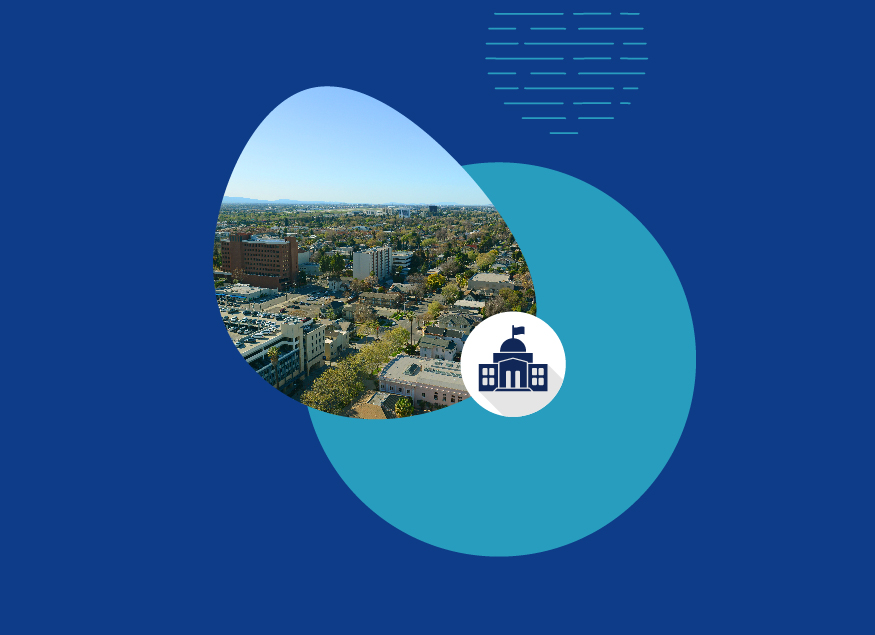State and Local Government agencies are constantly seeking ways to improve their services and processes to better serve their constituents and must embrace new technologies, prioritize cybersecurity and ensure data privacy to achieve this goal. These important topics were discussed by Government IT and industry leaders at the Carahsoft Digital Transformation Roadshow in San Jose, California. Speakers covered how to implement emerging technologies, enhance customer experience and protect constituents’ privacy and security through innovation, artificial intelligence (AI), cybersecurity and data privacy solutions.
Innovating Service Delivery to Constituents
Using advanced technologies can significantly elevate service delivery to constituents in several ways. Firstly, it can enhance the speed and efficiency of Government services, allowing constituents to access information and services more quickly and easily. Secondly, advanced technologies improve the accuracy and quality of Government services through data analytics that help identify patterns and trends, reduce errors and improve outcomes. Finally, advanced technologies increase transparency and accountability, allowing constituents to track the progress of their requests and hold agencies accountable for their actions.
State and Local agencies are often faced with a lack of resources, making it imperative to leverage new technologies and processes to save time and money. The updated systems must also be secured to protect their constituents’ data which requires significant planning, resources and collaboration to achieve successful implementation. Additionally, agencies must ensure that any changes they make comply with legal and regulatory requirements, such as data privacy laws and accessibility standards.

AI solutions are just one of the successful implementations that has enabled agencies to streamline processes and upgrade service offerings to constituents. The adoption of innovative technologies has facilitated faster and more efficient interactions with constituents, leading to improved customer service and satisfaction. The integration of AI technology for real-time data analysis has also empowered agencies to make informed decisions and respond promptly to community needs.
Assessing the Impact of AI
Generative AI is a type of AI that can create new content, such as images, videos and text based on data it has compiled. By studying generative AI, State and Local agencies can develop policies and guidelines for the responsible use of this technology, including measures to prevent the creation and dissemination of harmful or misleading content.
Additionally, studying generative AI helps Government agencies identify potential applications for this technology that can benefit society, such as creating realistic simulations for training purposes or prompting new scientific discoveries. By understanding the potential benefits and risks of generative AI, agencies can make informed decisions about incorporating this technology in their operations.
If leveraged for services and processes, AI could provide many benefits to State and Local agencies through several means:
- Chatbots and Virtual Assistants: handle citizen inquiries, provide information about Government services and assist with simple transactions.
- Data Analysis and Predictive Modeling: analyze large volumes of data to identify patterns and trends, enabling State and Local agencies to make data-driven decisions in areas such as public safety, resource allocation and urban planning.
- Automation of Routine Tasks: automate repetitive and time-consuming data entry and document processing, freeing up employees to focus on more complex and high-value activities.
- Fraud Detection and Prevention: detect and prevent fraudulent activities, such as tax evasion and benefit fraud, thereby safeguarding Government resources and taxpayer funds.
- Accessibility and Inclusivity: improve accessibility for individuals with disabilities by providing speech-to-text and text-to-speech capabilities, as well as other assistive technologies.
Cybersecurity and the Current Threat Landscape
State and Local Government agencies play a crucial role in national security, and their systems and data must be protected to prevent potential vulnerabilities that could be exploited by malicious actors. The current threat landscape includes sophisticated cyber threats such as ransomware, phishing attacks and advanced persistent threats. Robust cybersecurity measures are necessary to defend against these evolving threats and prevent disruptions to Government services.
Sensitive citizen data, including personal, financial and health information is often handled by State and Local agencies. Therefore, it is important for agencies to maintain strong cybersecurity and data privacy to uphold the public’s trust and confidence. By adhering to data protection regulations and compliance requirements, such as the Health Insurance Portability and Accountability Act (HIPAA) and the General Data Protection Regulation (GDPR), agencies can preserve the integrity of Government operations.
Several agencies have successfully implemented cybersecurity and data privacy measures:
- Multi-Factor Authentication (MFA) to strengthen access controls and protect sensitive systems and data from unauthorized access.
- Data encryption to protect sensitive information both at rest and in transit.
- Incident response planning to effectively address and mitigate cybersecurity incidents.
- Compliance with data protection regulations such as HIPAA, GDPR and the Payment Card Industry Data Security Standard (PCI DSS).
- Cybersecurity training and awareness programs to educate employees about cybersecurity best practices, phishing awareness and the importance of data privacy.
- Collaboration and information sharing with other agencies, law enforcement and cybersecurity organizations to stay informed about emerging threats and best practices in cybersecurity.
The path to elevating State and Local Government services requires a strategic incorporation of transformative technologies, notably AI, cybersecurity and data privacy. Leveraging advanced technologies can enhance interactions with constituents, fostering efficiency and transparency. Amidst resource constraints, agencies must implement AI solutions while also prioritizing robust cybersecurity measures. Agencies must navigate digital transformation with responsibility, ensuring the delivery of efficient, secure and privacy-focused services, thereby forging a future where technology elevates governance while upholding public trust.
Explore more resources and learn more about Carahsoft’s State and Local Roadshow Series: Digital Transformation by visiting our Roadshow portfolio.








